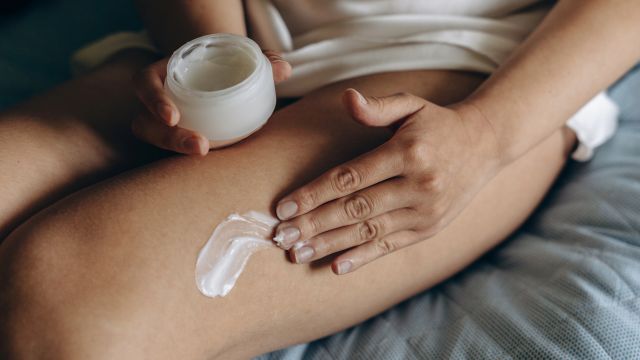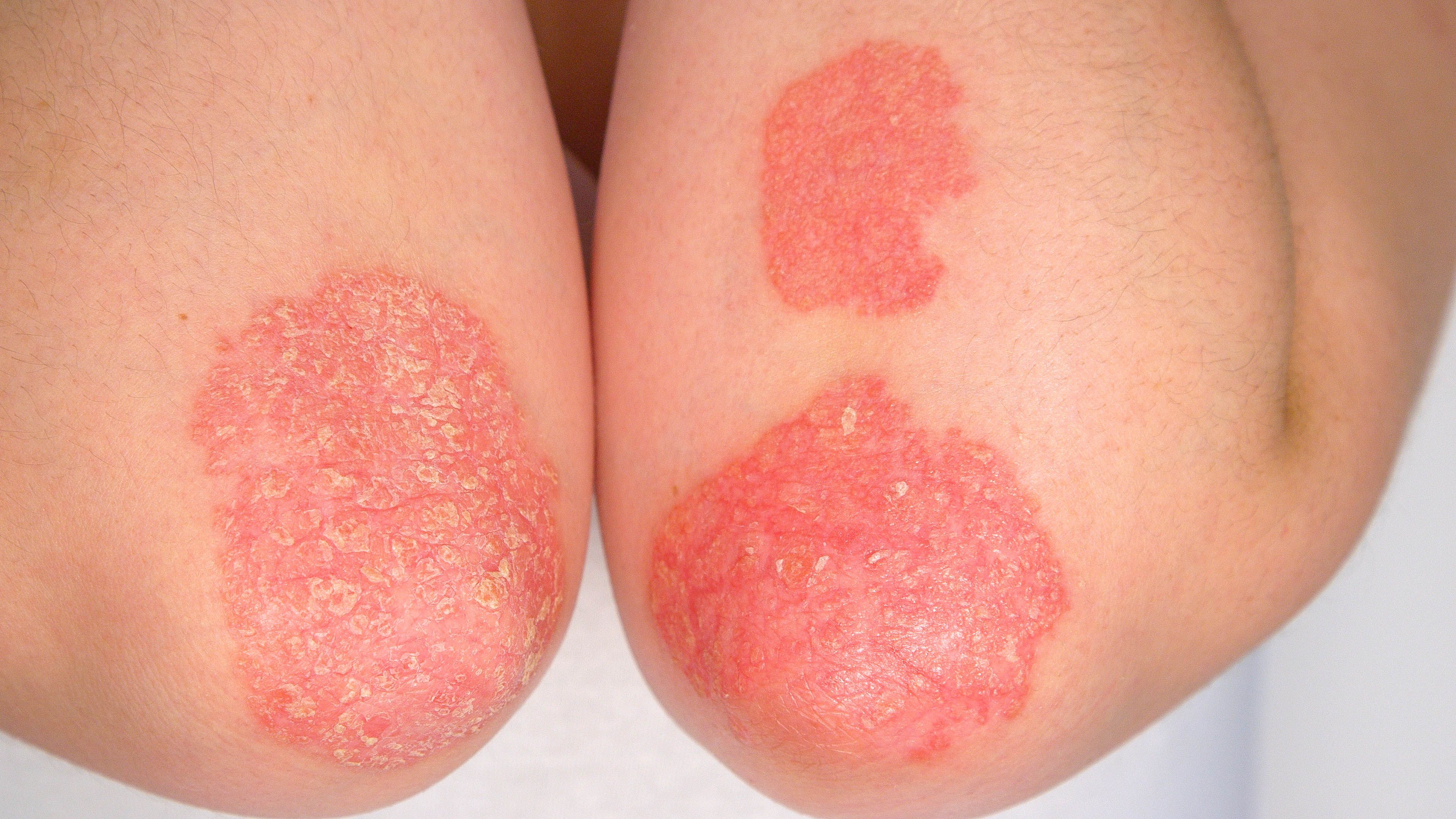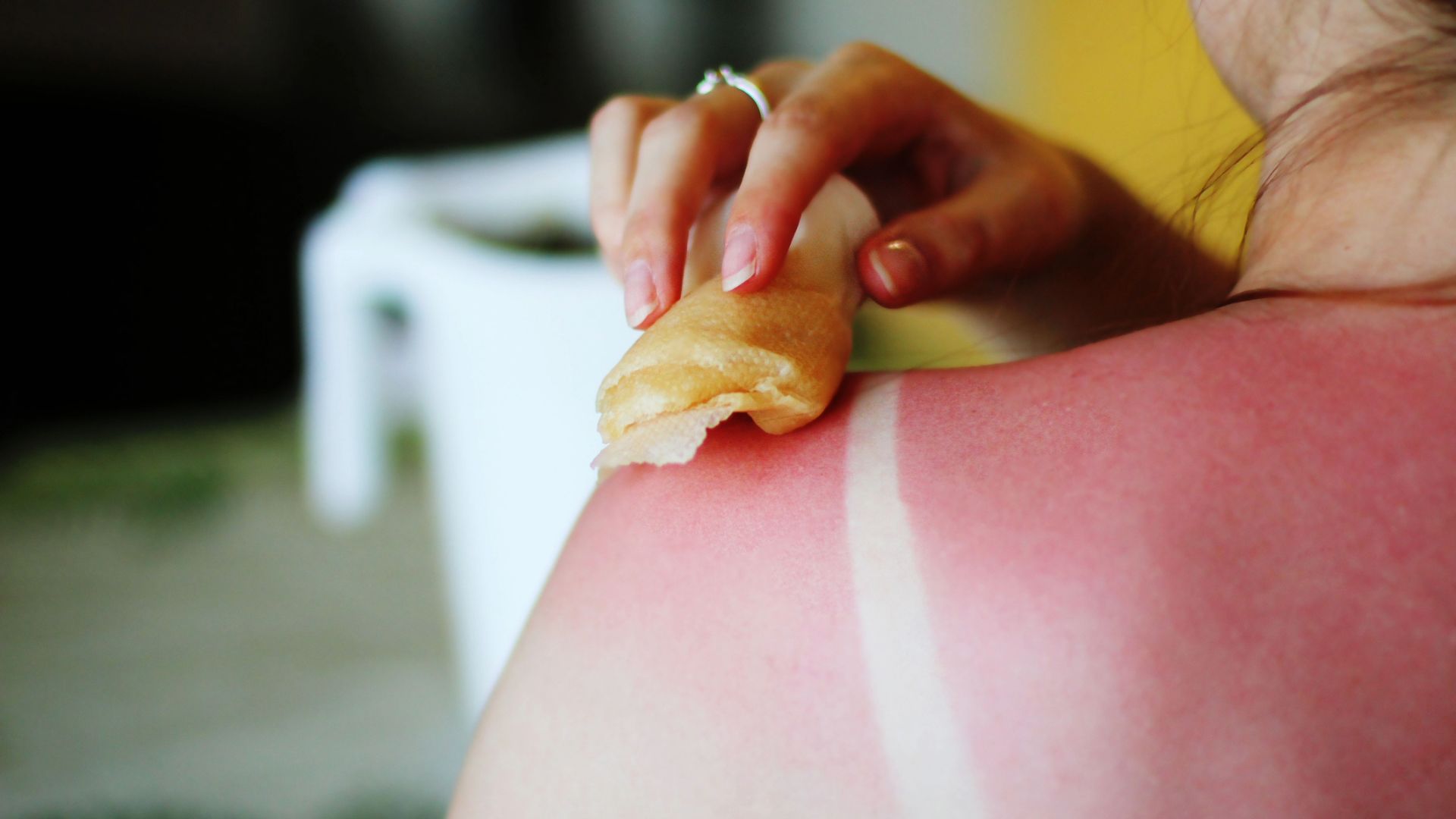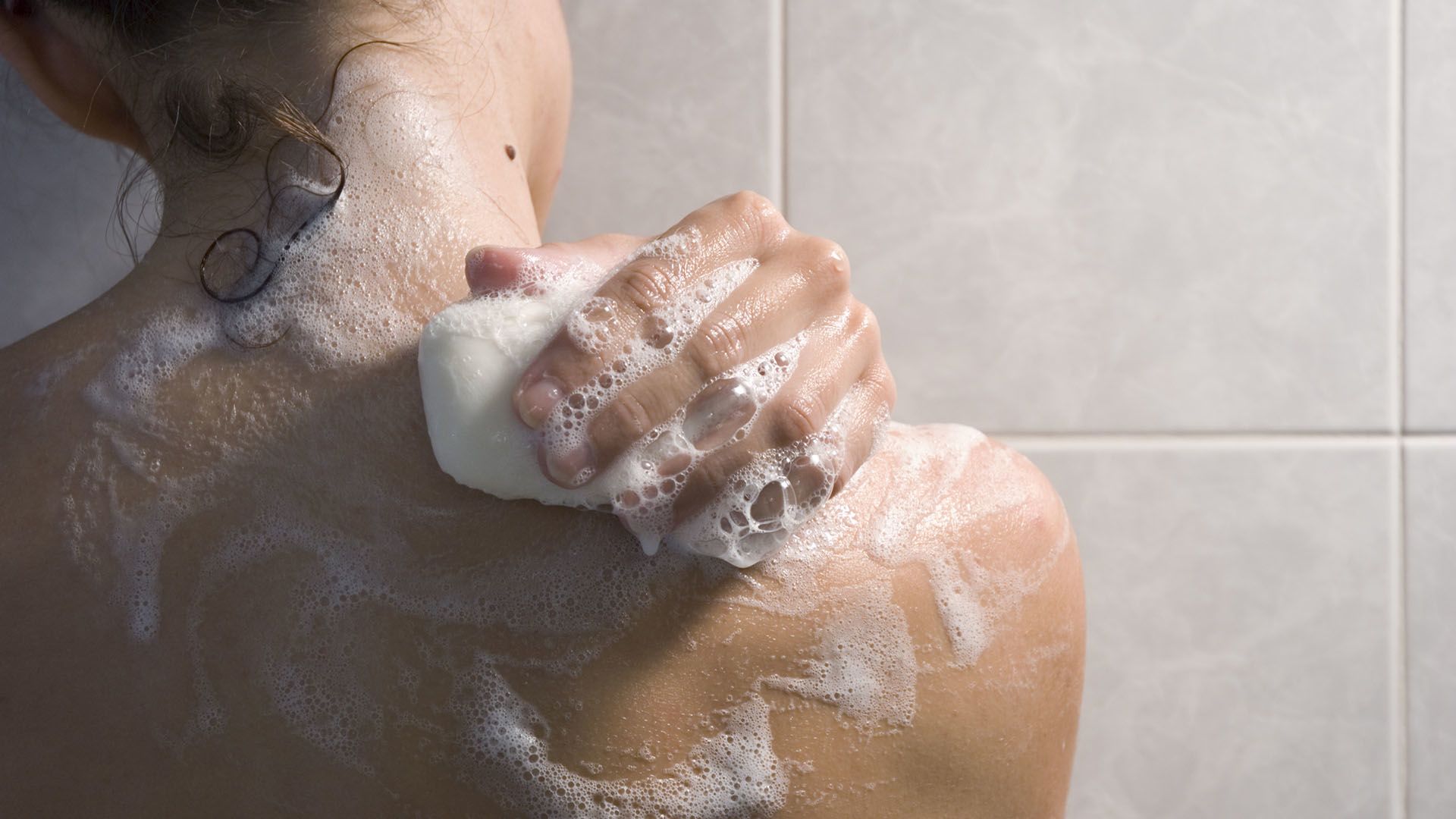Updated on April 15, 2025
Psoriasis is an autoimmune skin disease that causes the body to mistakenly attack its own healthy tissue. For those with the condition, their skin cells grow unusually fast, causing red, scaly patches or “plaques” to develop. These skin patches can be itchy and painful. They usually appear on the elbows, knees, and scalp, but they can occur anywhere on the body. Experts aren’t completely sure what causes psoriasis. Both the immune system and genetics may play a role.
There isn’t a cure for psoriasis, but symptoms of the condition are completely manageable if you seek treatment as soon as possible. Maintaining healthy skin habits along with effective treatments, which may include biologics, phototherapy, oral medications, and topical medicines like steroids can help minimize psoriasis flare ups and inflammation.
Here are some of the simplest ways to care for your skin—plus other lifestyle tips that can help ease symptoms and manage psoriasis.
3 daily strategies to prevent psoriasis flare ups
These at-home management techniques may ease symptoms and prevent flare-ups:
Take a daily bath: Soaking in a warm bath with mild bath oil, colloidal oatmeal or Epsom salt can help soothe inflamed skin and minimize scaling caused by psoriasis. Be sure to use products designed for sensitive skin. Ask your healthcare provider what ingredients to look for and which to avoid. Wash gently as scrubbing can cause further irritation. For the same reason, be sure to soak in warm water—not hot. And keep it short, or bathe for only 5 to 15 minutes as soaking too long can lead to dryness.
Be mindful about moisturizing: As soon as you get out of the bath or shower, apply an ointment-based fragrance-free moisturizer—doing so while your skin is still damp will help seal in the moisture, ease current flare-ups, and prevent future ones. During cold months, moisturizing a few times a day may be necessary.
Spend some time in outside: Exposing your skin to small amounts of sunlight can help lesions and breakouts heal. Sunlight emits ultraviolet rays, called UVA and UVB rays. UVB rays can have anti-inflammatory effects and help slow the rate of skin turnover. UVA rays, however, are damaging and may increase the risk for skin cancer. Finding a safe balance is essential. Too much sun exposure may be harmful and worsen psoriasis. Wearing sunscreen is also very important. Talk to your HCP or a dermatologist about how much exposure is safe and appropriate for your skin.
5 more lifestyle tips for keeping psoriasis symptoms at bay
A healthy lifestyle that includes a well-balanced diet and regular exercise can also improve life with psoriasis. Here’s how to get started:
Consider following a Mediterranean eating plan: Psoriasis isn’t caused by a particular food or diet. And there are no foods or diet that will cure the condition. But for people with psoriasis, the food they eat may make their symptoms worse—or a bit better. That’s because many foods can trigger inflammation throughout the body. So, avoiding these foods and opting for others that may help control inflammation can help manage or prevent flare ups.
Having psoriasis also increases the risk for certain conditions like coronary artery disease, type 2 diabetes, and stroke. Research shows that following a Mediterranean diet—an eating plan rich in fruits and vegetables as well as olive oil, beans, nuts and seeds as well as legumes can reduce the risk of heart disease, diabetes, stroke, and high cholesterol. Fish and certain oils, specifically options that contain omega-3s, can also help reduce inflammation and ease psoriasis symptoms.
A Mediterranean style diet also limits sugar and added sugars, refined carbohydrates (like white bread, white rice, processed foods) full-fat dairy, saturated or unhealthy fats, and alcohol—all of these things may contribute to inflammation in the body.
Alcohol can also reduce the effectiveness of some psoriasis treatments and increase harmful effects on the liver. Meanwhile, limiting or avoiding alcohol can help keep the condition under control and lengthen periods of remission.
There is evidence that people with psoriasis tend to have higher rates of celiac disease, a condition that occurs when gluten (a protein in wheat and some other grains) triggers the body to attack tissues in the small intestine. People with celiac disease need to avoid gluten completely. There is some evidence, however, that people with psoriasis who do not have celiac disease may also benefit from reducing the amount of gluten in their diet.
Do not smoke: Smoking may not only worsen the severity of psoriasis but also interfere with treatment, making it much harder to control.
If you smoke, take steps to quit. It often takes multiple tries to stop smoking. It is not easy to break this habit as nicotine is highly addictive. But it is worth it to continue to try and avoid the serious health risks of smoking.
Reach out to your HCP for safe and effective treatments proven to help people stop smoking. Resources such as SmokeFree.gov or personal therapists can also provide support. Your HCP can help you choose the resource that are best and most helpful for you.
Try to stay active or move more each day: Getting regular physical activity is important for everyone. It’s particularly important for people—including those with psoriasis—who are at higher risk for chronic health issues, such as heart disease and diabetes. Exercise can help reduce these risks and protect your long-term health.
Being active can also help improve your mood and support your self-confidence. Exercise doesn’t need to be done in lengthy or intense workout sessions. Any movement counts and even small bouts of activity add up over time.
If you’re new to exercise or trying to get back into a consistent routine, start small. Aim to focus on easy, fun, or gentle exercises at first. Over time, you may progress to longer or more strenuous routines. But even a daily walk, swimming, yoga, or tai chi can offer notable health benefits.
If you’d like some advice on how to get started, ask your HCP. You can also talk to a physical therapist or a local trainer. Joining a group or enlisting a friend as a workout or walking partner can also help you find motivation and the encouragement you need.
Be aware of your stress level: Everyone faces stress from time to time. It’s unavoidable and part of life. And often, it can help you find the drive and motivation you need to succeed or overcome challenging situations. But chronically high stress levels can be harmful. And for people with psoriasis, this can trigger an over-response from your immune system and a flare up.
Taking steps to manage stress and find relief when you are able, can help manage psoriasis and avoid flare ups. This may include taking even brief self-care breaks throughout the day—doing anything that feels restorative, such as taking a short walk, stepping away from your phone or computer for a healthy snack or a chat with a friend, reading a good book, or listening to some music.
Your HCP or a mental health professional can also help you learn some stress management techniques, such as meditation or deep breathing.
Seek help when you need it: While psoriasis is a chronic condition that requires daily attention, if you take good care of your skin and stick to your treatment plan, flare-ups and breakouts can be reduced, and you may enjoy all the things that you’re used to doing.
For some people, however, the cosmetic changes psoriasis brings can be challenging to navigate. The right management plan and support system will greatly reduce mood fluctuations.
The same process that encourages inflammation may influence your brain and mental state. It’s not uncommon for those with psoriasis to experience symptoms of depression, anxiety, or even suicidal thoughts.
If you notice changes in your mood, talk to your dermatologist for support group recommendations; the National Psoriasis Foundation is a great go-to resource as well.
If you believe that you or someone you know is at risk for suicide, trust your instincts. Don’t be afraid to ask direct questions, such as “Are you thinking about hurting yourself or dying?” Having this candid talk won’t make someone more likely to take their own life. It could have the opposite effect. Giving people the opportunity to express their feelings may reduce the likelihood that they act on suicidal thoughts.
People considering suicide can reach out to the Crisis Text Line by texting ‘HELLO’ to 741741. They will be connected to someone who will listen to their concerns without judgment. They can also call the Suicide & Crisis Lifeline at 988.





